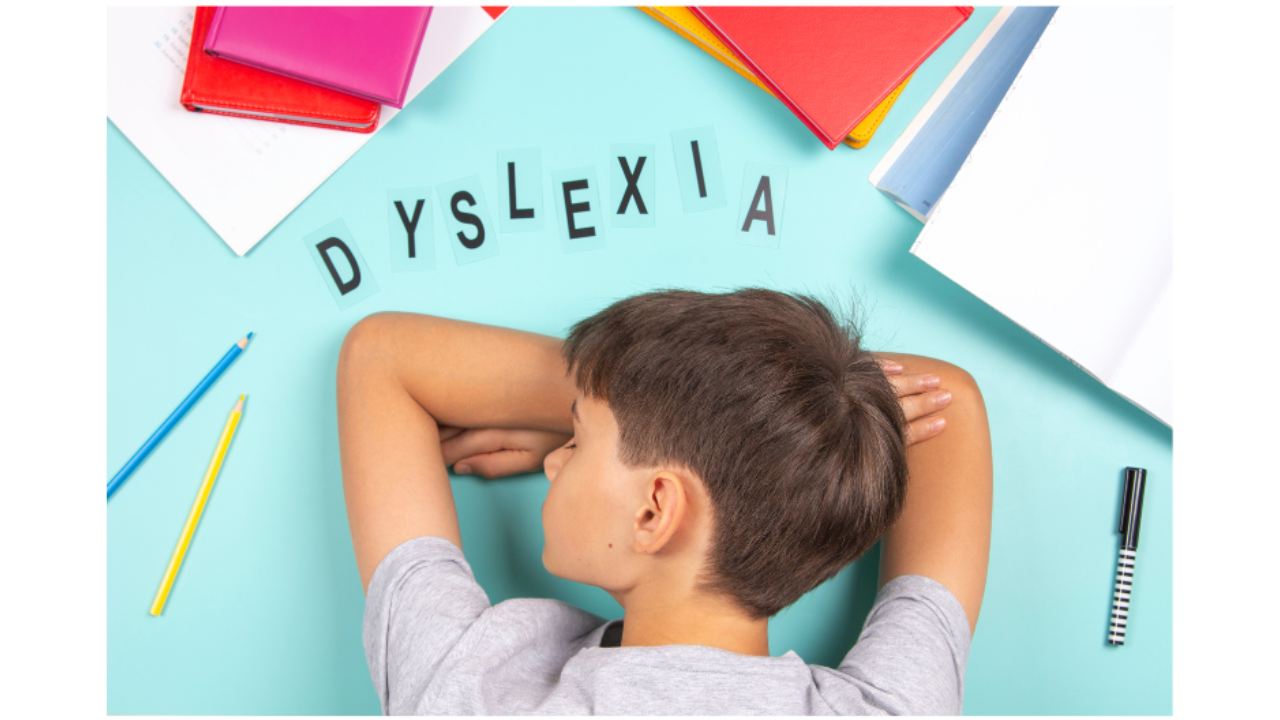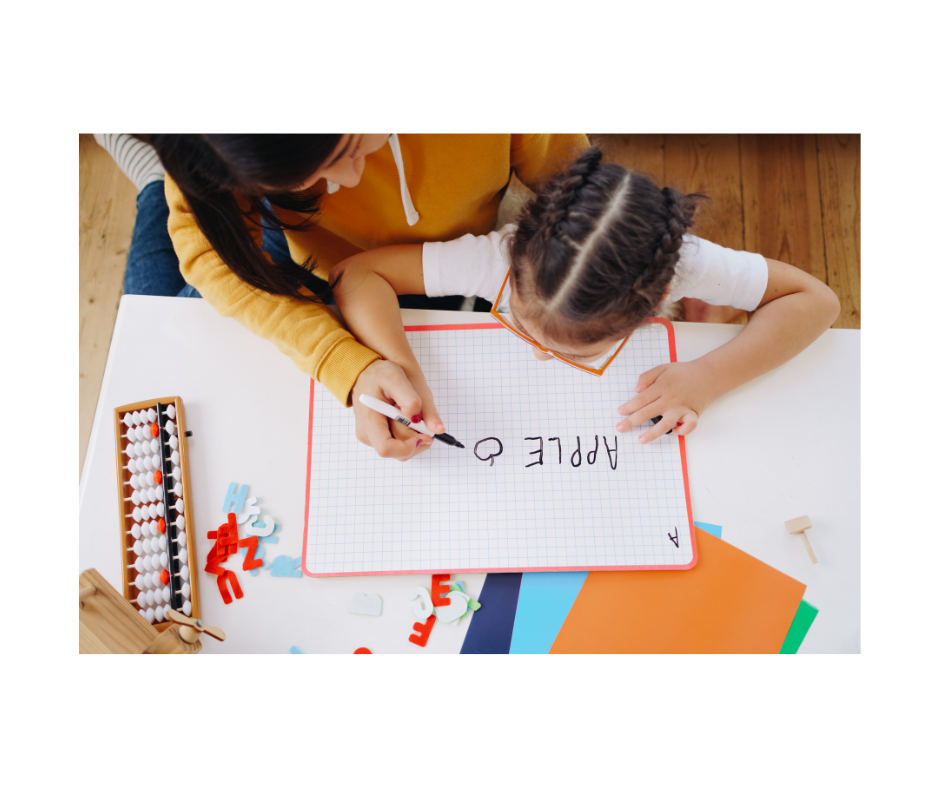ADHD and Dyslexia in Children: How to Recognize, Support, & Help Your Child Thrive
Nov 08, 2024
If you’re a parent of a child with ADHD, you probably already know a little bit about what it’s like to manage attention challenges, impulsivity, and maybe some extra support at school. But what if there’s more to the story? Many kids with ADHD also experience dyslexia, a reading disorder that can make it hard to recognize words, spell correctly, or read fluently. The combination of ADHD and dyslexia can make school extra challenging, but with the right support, your child can absolutely thrive. Here’s everything you need to know about spotting dyslexia in a child with ADHD, getting them support at school, and helping them build confidence at home.
What is Dyslexia, and How Does It Interact with ADHD?
Dyslexia is a learning disability that affects a person’s ability to read and process language. Kids with dyslexia might struggle with sounding out words, spelling, reading quickly, or remembering what they just read. Meanwhile, ADHD affects a child’s ability to sustain focus, pay attention, and control impulses.
When a child has both ADHD and dyslexia, these two conditions can amplify each other. For example:
Difficulty Focusing on Reading:
Kids with ADHD already have trouble keeping their focus on challenging tasks, and if reading itself is hard for them, they’re even more likely to feel frustrated or distracted.
Trouble Remembering Words:
Dyslexia makes reading challenging, and kids with ADHD may also struggle with working memory and following directions.
Avoiding Reading Tasks:
Because it feels hard and exhausting, kids with both ADHD and dyslexia may avoid reading altogether, which only reinforces the cycle of frustration.
 How to Figure Out if Dyslexia is Part of the Picture
How to Figure Out if Dyslexia is Part of the Picture
So, how do you know if your child with ADHD also has dyslexia? Here are a few signs to watch for:
Struggles with Reading:
They might avoid reading or become visibly frustrated when they have to read.
Reading Below Grade Level:
Kids with dyslexia often read at a lower grade level than their peers, despite their intelligence and curiosity.
Frequent Spelling Mistakes:
Difficulty spelling simple words and frequent mix-ups of letters are common signs of dyslexia.
Difficulty with Phonics:
If your child has trouble with sounding out words or doesn’t seem to “hear” the sounds in words correctly, dyslexia could be involved.
To get a clear answer, talk with your child’s teacher or school counselor about a formal evaluation. An evaluation can help determine if your child has dyslexia (or another specific learning disorder) alongside ADHD.

School Accommodations and Support Services
Once you know your child has both ADHD and dyslexia, it’s time to work with the school to get the right supports in place. Here’s what to know about accommodations and special education options:
Accommodations
A 504 Plan might be the best fit if your child doesn’t require specialized instruction but needs accommodations to access the general curriculum. Some helpful accommodations could include
1. Extra Time: For both reading and test-taking, giving your child more time can help reduce pressure and frustration.
2. Audio Books and Digital Readers: Tools like audiobooks and text-to-speech software can be game-changers for kids with dyslexia, letting them “read” in a different way.
3. Written Instructions: Having assignments written down can help them stay organized and understand what’s expected.
4. Breaks During Class: Both ADHD and dyslexia can make extended focus hard, so regular breaks can help them recharge.
Special Education and an IEP
If your child needs more intensive support, they may qualify for an Individualized Education Program (IEP). An IEP includes specialized instruction, personalized learning goals, and services tailored to your child’s needs, such as:
1. Reading Interventions: Specific reading programs that target dyslexia can help them build decoding and comprehension skills.
2. Speech and Language Services: These can help if dyslexia is affecting their language development.
3. Behavioral Supports for ADHD: Strategies to help with focus, impulse control, and executive functioning can also be included in the IEP.
IEPs and 504 Plans are revisited every year, so it’s important to advocate for regular updates based on your child’s progress.
 How to Support Your Child at Home
How to Support Your Child at Home
Your support at home can make a world of difference for a child with ADHD and dyslexia. Here are a few strategies to help them build confidence and make learning feel a little less overwhelming:
1. Encourage Audiobooks: Audiobooks are great because they allow kids to access age-appropriate stories and build comprehension skills without the stress of decoding every word.
2. Use Multisensory Learning Techniques: Dyslexia specialists often use multisensory approaches, like tracing letters in sand or using magnetic letters. This kind of hands-on learning can help kids remember words and sounds.
3. Set Up a Quiet, Distraction-Free Homework Area: Kids with ADHD benefit from a quiet, organized space to work. Try to minimize distractions and set up a routine that includes short breaks.
4. Practice Patience and Positive Reinforcement: Both ADHD and dyslexia can make school tough, so they need to hear positive reinforcement. Praise their effort, celebrate small wins, and remind them of their strengths.
5. Break Tasks Into Smaller Steps: Instead of tackling a big assignment all at once, help your child break it into manageable steps. This can reduce overwhelm and keep them focused.
6. Read Together: Make reading a shared activity so they can enjoy the story without the stress of doing it alone. Even if you’re doing most of the reading, this bonding time helps them see reading as something fun and positive.
 How ADHD and Dyslexia Can Make Your Child Feel
How ADHD and Dyslexia Can Make Your Child Feel
Living with ADHD and dyslexia can be frustrating and sometimes isolating for your child. They might feel different from their friends and classmates, discouraged by constant struggles, or embarrassed about their reading level. It’s common for kids with these challenges to experience dips in self-esteem and anxiety about school.
As a parent, remind your child that they are not defined by their learning challenges. Focus on their strengths and talents outside of academics. Whether they’re creative, athletic, empathetic, or great at problem-solving, these qualities deserve to be celebrated just as much as any school accomplishment.
Final Thoughts
ADHD and dyslexia may present unique challenges, but they don’t define what your child can achieve. With the right supports at school, some patience and encouragement at home, and an understanding of what they’re going through, you can help your child thrive in their own way.
Remember, you’re not alone on this journey. Teachers, special education staff, and dyslexia specialists are all there to help. And while it can be overwhelming at times, every small step your child takes is a big win worth celebrating!
Parenting Alongside You!
Dr. Emma and The Aparently Parenting Team
SUBSCRIBE FOR FREE PARENTING RESOURCES
We know you're busy! So, we'll make sure to only send the IMPORTANT PARENTING stuff!!
We hate SPAM. We will never sell your information, for any reason.
